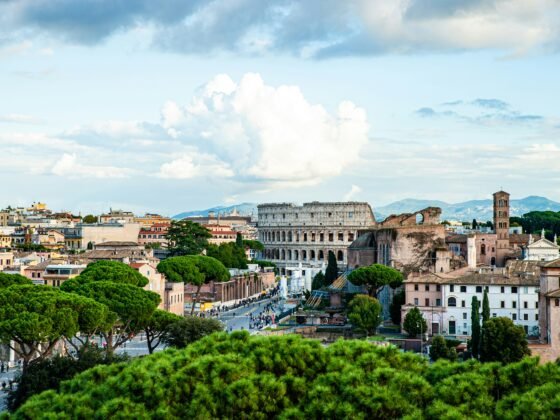Moving to a new country often involves excitement, questions, and a fair amount of paperwork. Individuals who wish to reside in Portugal while relying on regular income sources—be they pensions, investments, or remote work salaries—might consider applying for the d7 visa Portugal program. This particular residence pathway has gained significant popularity among people seeking a long-term stay without the obligation to invest large sums of money in property or business ventures.
To provide clarity on this topic, the following discussion examines how the visa d7 Portugal program operates, what kind of financial evidence is required, and how the application procedure typically unfolds. The goal is to give prospective applicants enough insight so they can approach the process with confidence and an organized mindset.
1. Understanding the Basis of the D7 Visa
The D7 visa is designed for non-European Union nationals who possess steady means of supporting themselves. Unlike programs that target property buyers or large-scale investors, the portugal visa d7 is tailored to individuals whose primary income comes from pensions, personal savings, remote employment, or similar sources of revenue. In essence, the Portuguese government wants assurance that D7 applicants will not become a burden on local social services.
Once approved, the visa leads to a residence permit that allows entry to Portugal and subsequent long-term stays. This status grants holders the privilege of living, studying, and potentially working in the country, provided they continue meeting specific conditions. Over time, it can open doors to permanent residency or even citizenship, offering a new avenue for individuals who see Portugal as a long-term home.
2. Advantages of the D7 Pathway
Many individuals pursue the d7 visa in Portugal due to the country’s appealing lifestyle. The mild climate, scenic coastlines, and welcoming social environment make it an attractive choice for retirees, digital nomads, and anyone seeking a slower pace of life. Beyond the personal benefits, the D7 path includes several other upsides:
1. Straightforward Income Thresholds: Applicants must demonstrate adequate, reliable monthly income instead of making a large capital investment.
2. Family Inclusion: Spouses and dependent children can often join the main applicant, thus allowing entire families to settle under the same legal umbrella.
3. Potential for Long-Term Security: Renewing this visa paves the way to more permanent forms of residency, which might eventually offer a path to Portuguese citizenship.
4. Access to the Schengen Zone: Portugal is part of the Schengen Area, so residents can usually travel freely to other member countries without additional visa hurdles.
These benefits can be especially appealing to individuals who value mobility and the prospect of forging a new life in a stable European country.
3. Portugal D7 Visa Requirements: Financial Criteria
A critical pillar of the D7 program is proof of consistent earnings or savings sufficient to fund daily life in Portugal. Although the exact income minimum can vary based on factors like inflation or changing government policies, the usual baseline is tied to Portugal’s official minimum wage, multiplied according to the number of family members involved.
Some people rely on pension statements, while others present rental income agreements or financial account summaries to prove they can meet portugal d7 visa requirements. Remote employees might show a contract with an overseas employer, complete with payslips, to verify they meet the monthly threshold. Regardless of the source, clarity and consistency are key—banking records, official letters, or notarized documents generally help validate the applicant’s stability.
4. Additional D7 Visa Portugal Requirements
Though finances form the cornerstone, there are other d7 visa requirements Portugal enforces. These often include:
1. Criminal Background Records: Prospective residents typically must present a police clearance certificate from their country of origin and possibly from any nation where they lived for an extended period.
2. Health Coverage: Applicants need valid medical insurance that works in Portugal—at least for the initial stay—so that they won’t rely on public services without coverage.
3. Accommodation Details: Authorities usually want to see a signed rental contract, proof of home ownership, or another credible document confirming that the applicant has a place to live.
4. Valid Passport: A crucial piece of identification, the passport must remain valid for the entirety of the planned stay, usually plus several months beyond.
Properly assembling these items helps smooth the way during the official review. Missing or vague documentation is one of the most common reasons for visa delays or refusals.
5. Application Submission Process
The initial step toward a d7 visa for Portugal often begins in the applicant’s home country, where they approach the local Portuguese embassy or consulate. Each diplomatic mission might have specific guidelines, but most require filling out a standard application form, paying the relevant fees, and supplying original and photocopied documents.
Once the embassy or consulate reviews the materials, an interview might be scheduled. In this meeting, applicants could be asked about their financial status, planned duration of stay, and the rationale for choosing Portugal. Should the diplomatic authorities find the documentation convincing, a temporary visa is typically granted.
Upon arriving in Portugal with that temporary visa, the next stage is making an appointment with the national immigration services (SEF). During this appointment, officials take fingerprints, capture photographs, and verify that all d7 visa portugal requirements are indeed met. Once cleared, the applicant receives a residency permit valid for one to two years, subject to renewal.
6. Renewal and Long-Term Residency
The first residency permit tied to the d7 portugal visa usually holds a relatively short validity period, but it’s renewable if the holder continues fulfilling the same income and legal conditions. Each renewal cycle might request updated evidence of financial stability, health insurance, and local address. This ensures that individuals remain compliant, especially if their financial or personal circumstances change.
A series of successful renewals can build the foundation for permanent residency or even an application for citizenship. Portugal generally allows citizenship after five years of continuous residency, provided the individual meets language proficiency standards (often A2 level Portuguese) and demonstrates ongoing ties to the country.
7. Tailoring Accommodation to the D7 Visa Requirements Portugal
Finding a place to live is integral to securing the D7 visa. Applicants need to prove they have stable housing, whether via a rental contract or property purchase. Since evidence of accommodation is part of the initial consulate submission, planning ahead is crucial. Some individuals arrange short-term leases that extend well beyond their visa appointment date, ensuring that there’s no gap in housing coverage.
8. Highlighting Family Reunification
One appealing aspect of the d7 visa in Portugal is how relatives can join the principal applicant. Often called “family reunification,” this system allows spouses, children, and sometimes parents to apply for a similar residency permit. However, the main applicant must prove they earn enough not just for themselves but for their dependents as well.
This part of the process typically involves extra paperwork, such as marriage certificates or birth records. As always, official translations and notarizations are usually essential if the documents are not originally in Portuguese.
9. Common Obstacles to Watch Out For
Even though the d7 visa Portugal requirements are straightforward in theory, some frequent issues may emerge:
1. Insufficient Documentation: Incomplete sets of bank statements or out-of-date criminal clearances can halt progress.
2. Last-Minute Changes: Switching accommodation details near the appointment date might confuse authorities.
3. Income Gaps: If an applicant’s funds drop below the required threshold for a notable time, it can jeopardize the application.
4. Delayed Appointments: Scheduling with SEF can be challenging, especially if demand is high. Missing deadlines may force applicants to restart parts of the process.
Awareness of these pitfalls helps applicants be proactive, reducing the likelihood of complications.
10. Living in Portugal Under the D7 Visa
After an applicant successfully navigates the d7 visa for Portugal, the real journey starts. Settling into day-to-day life can include applying for a local tax number (NIF), opening bank accounts, and registering with the national health system, especially after the residency permit is confirmed. Learning basic Portuguese phrases or enrolling in language courses can significantly ease cultural integration, even if many residents in major cities speak English.
Portugal offers a relatively moderate cost of living compared to other Western European countries. Big cities like Lisbon and Porto might be pricier than smaller towns, but everyday expenses such as groceries, utilities, and public transportation tend to be budget-friendly. Furthermore, cultural attractions like festivals, historic sites, and regional culinary traditions can enrich the overall residency experience, making daily life both enjoyable and stimulating.
11. Potential Transition to Permanent Residency or Citizenship
Once a resident holds the D7-based permit for a consecutive period—commonly five years—they might explore permanent residency or naturalization pathways. Permanent residency grants most of the same privileges as Portuguese citizens, excluding the right to vote in national elections. Naturalization, on the other hand, offers a Portuguese passport and the broader rights that come with full citizenship, including EU mobility.
To qualify for citizenship, applicants often need to prove their integration into Portuguese life. This can include passing a language test and demonstrating continuous legal residence. Although the process can be time-consuming, the prospect of EU citizenship remains a significant draw for many long-term foreign residents.
12. Conclusion
Opting for the d7 visa Portugal route can be a life-altering choice, paving the way for a fulfilling stay in a country known for its coastal beauty, cultural diversity, and welcoming atmosphere. By focusing on stable income, reliable housing, and meeting the d7 visa requirements Portugal mandates, prospective applicants stand a good chance of securing this coveted residency permit.
As the number of digital nomads, retirees, and remote professionals eyeing Portugal continues to grow, the popularity of the portugal visa d7 program will likely remain high. For individuals ready to embark on this journey, thorough preparation, organized documentation, and a willingness to adapt are key. Achieving residency under the D7 framework is often the first step on a longer path that can open up everything from European travel freedom to, eventually, Portuguese citizenship.
Anyone eager to call Portugal home—even if initially on a temporary basis—should explore the d7 visa Portugal option as a viable and potentially rewarding legal pathway. Through careful planning and timely execution of each phase, new residents can immerse themselves in Portugal’s rich heritage, vibrant communities, and stable lifestyle, ensuring a memorable and fruitful experience in their chosen new environment.
Image: Unsplash, Nick Karvounis












